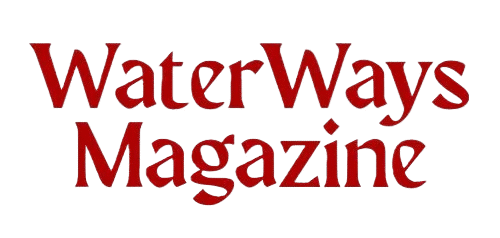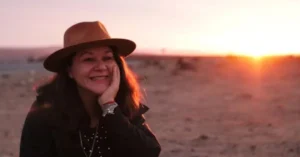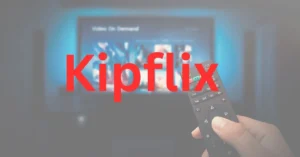In a rapidly digitizing world where even human connections are increasingly algorithmic, some individuals are building an entirely different model of existence—one where community, sustainability, and shared values form the backbone of life. At the digital heart of this movement lies a quietly growing platform: www.freeworlder.org.
While its web address may seem unassuming, the mission it represents is far from ordinary. FreeWorlder.org is not just a website; it is a dynamic directory, a philosophical movement, and a global lifeline for those reimagining civilization itself.
The New Atlas of Intentional Communities
FreeWorlder.org serves as a global map and connector for intentional communities, off-grid eco-villages, transition towns, alternative co-living spaces, and barter-based economies. Unlike traditional social networks, which revolve around attention and monetization, FreeWorlder operates from a different premise: that humans thrive best when resources, energy, and life are shared freely, not traded for profit.
Each pin on the FreeWorlder map represents a physical or virtual location where individuals and groups are experimenting with ways to live outside the dominant structures of finance, government, and commerce. Some grow their own food using permaculture. Others generate their own electricity. Many reject monetary exchange entirely, choosing instead to gift, barter, or co-create.
For many users, FreeWorlder isn’t just a website—it’s a compass for an entirely different way of life.
A Growing Need for Alternative Networks
The rise of platforms like FreeWorlder is not occurring in a vacuum. Over the past decade, global crises—climate change, economic instability, political polarization, pandemic aftershocks—have forced many to question the stability and morality of mainstream systems.
Data privacy scandals have eroded trust in tech giants. Rising costs of living have made urban life unsustainable for many. In parallel, younger generations are increasingly disengaged from traditional career trajectories, often citing burnout, dissatisfaction, and a desire for meaningful work aligned with personal values.
It is in this context that FreeWorlder has grown, not through marketing campaigns or IPOs, but by word of mouth and shared intention.

How FreeWorlder Works
At its core, FreeWorlder.org is an open-access digital directory that allows individuals and communities to list their projects, homesteads, or communes along with detailed information:
- Location
- Philosophy and guiding values
- Resource availability (water, land, power)
- Visitor and volunteer policies
- Long-term integration options
- Skills needed or offered
- Currency model (if any)
Unlike conventional platforms, FreeWorlder is non-commercial, devoid of advertising or paywalls. Its value lies in its decentralized, peer-to-peer design, which encourages direct contact between participants. There are no middlemen, moderators, or institutional gatekeepers.
Importantly, the platform also facilitates cross-cultural dialogue and global collaboration, enabling communities in Nepal to exchange ideas with permaculture farms in Spain, or homesteaders in Oregon to learn from cooperatives in Senegal.
The Philosophy Behind the Pixels
Philosophically, FreeWorlder draws inspiration from post-capitalist, anarcho-syndicalist, and deep ecology principles. It represents a practical application of these ideologies, translating theory into tangible, often humble, real-world action.
But FreeWorlder is not dogmatic. Rather than prescribing a single blueprint, the platform celebrates pluralism and experimentation. Users will find radically different projects coexisting on the same map: some spiritual, some secular; some highly structured, others loosely organized; some rural, some urban.
What unites them is a shared commitment to freedom, cooperation, and low-impact living.
Volunteers and Nomads: A Human Web
One of the most compelling aspects of FreeWorlder.org is its mutual aid ethos. Many communities on the map actively seek volunteers, guests, and long-term members. In exchange for labor or skills—like carpentry, cooking, teaching, or web development—participants receive housing, food, and mentorship.
This creates a fluid ecosystem of nomadic helpers and grounded stewards, blurring the line between work and life, host and visitor. These arrangements are not always easy, but they offer a depth of experience and learning that few formal institutions provide.
It’s not uncommon to hear of someone who, burned out from a corporate job, discovered FreeWorlder and ended up planting food forests in Costa Rica or building earth domes in Croatia.

A Platform Without Profit Motive
Crucially, FreeWorlder has resisted monetization—at least in the conventional sense. There are no ads, no sponsored content, no hidden tiers. The site is funded through community donations, gift economies, and sometimes even the personal labor of its founders and volunteers.
This is both a strength and a limitation. On one hand, it keeps the platform ethically consistent with its values. On the other, it poses challenges for scalability, security, and maintenance.
But perhaps this is by design. FreeWorlder’s minimalism is not a bug—it’s a feature. It asks users to be co-creators, not just consumers.
Education and Skill-Sharing
FreeWorlder is more than a map; it’s a repository of knowledge. Many listings include workshops, courses, and on-site learning opportunities. Subjects range from:
- Natural building techniques (cob, straw bale, adobe)
- Regenerative agriculture and permaculture
- Renewable energy systems
- Consensus-based governance
- Conflict resolution and nonviolent communication
The aim is not to certify, but to empower. In many ways, FreeWorlder is an unofficial university of the future: decentralized, experiential, and rooted in practical relevance.
The Digital Risks and Real-World Challenges
Of course, no movement is without its problems. Some communities listed on FreeWorlder have struggled with internal conflict, lack of resources, or regulatory pressures. Others have been co-opted by less altruistic actors seeking free labor or ideological dominance.
Then there are digital risks: data security, doxxing, and state surveillance. In some countries, living off-grid or forming autonomous collectives is frowned upon—or even criminalized.
FreeWorlder navigates this terrain carefully, encouraging transparency without forcing disclosure, and relying on community verification rather than rigid vetting processes.
A Preview of a Post-Scarcity Civilization?
At its most radical, FreeWorlder is not just a tool—it’s a thought experiment in decentralized civilization. It hints at what the world might look like if resources were shared, governance was local, and human needs trumped market logic.
It challenges the assumptions that have dominated modernity: that work must be paid, that homes must be owned, that value comes from productivity.
Instead, FreeWorlder proposes something older, and yet strangely futuristic: a society built on mutual care, ecological balance, and horizontal power structures.
What the Future Holds
As of 2025, FreeWorlder continues to grow, both in scope and spirit. It is not flashy, nor is it likely to trend. But for a growing number of people—especially those disillusioned with both capitalism and conventional activism—it represents a quiet revolution.
Its success will depend not on venture capital, but on how many people are willing to build, share, and trust.
In a time when so much of the internet feels like noise, FreeWorlder is a signal—a low-tech, high-trust portal to a different kind of human future.
Final Thoughts
Whether you are a burned-out urbanite seeking meaning, a young family looking for sustainable roots, or a retiree wanting to give back, www.freeworlder.org offers a starting point. Not a destination, but a door.
It’s a reminder that another world is not just possible—it is already being built. One compost pile, shared meal, and hand-built home at a time.
For more information, click here.









